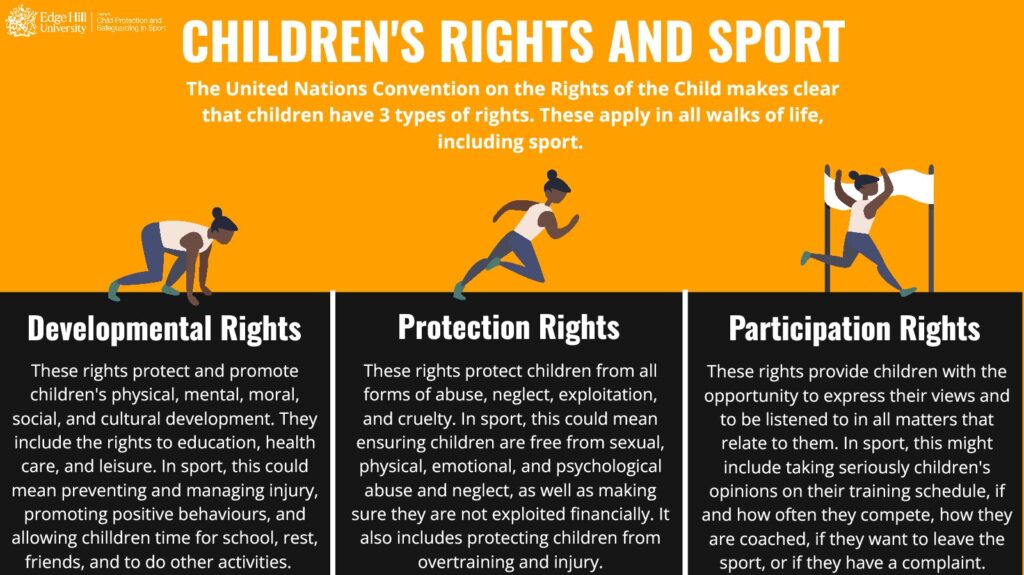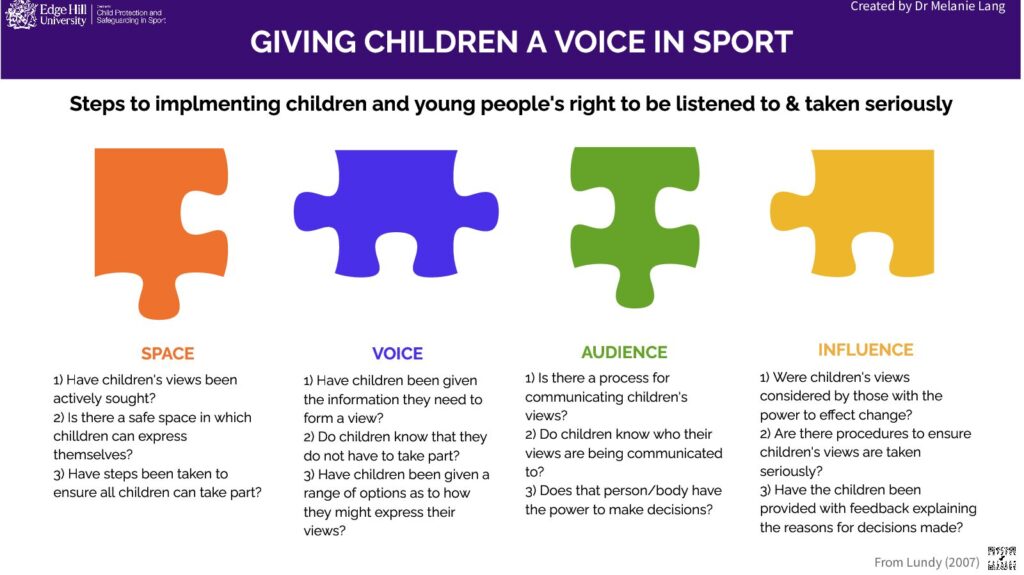
The United Nations Convention on the Rights of the Child make clear that children have three types of rights. These apply in all walks of life, including sport.
Developmental Rights
These rights protect and promote children’s physical, mental, moral, social, and cultural development. They include the rights to education, health care, and leisure. In sport, this could mean preventing and managing injury, promoting positive behaviours, and allowing children time for school, rest, friends, and to do other activities.
Protection Rights
These rights protect children from all forms of abuse, neglect, exploitation, and cruelty. In sport, this could mean ensuring children are free from sexual, physical, emotional, and psychological abuse and neglect, as well as making sure they are not exploited financially. It also includes protecting children from overtraining and injury.
Participation Rights
These rights provide children with the opportunity to express their views and to be listened to in all matters that related to them. In sport, this might include taking seriously children’s opinions on their training schedule, if and how often they compete, how they are coached, if they want to leave the sport, or if they have a complaint.
Steps to implementing children and young people’s right to be listened to and taken seriously.

Space
- Have children’s views been actively sought?
- Is there a safe space in which children can express themselves?
- Have steps been taken to ensure all children can take part?
Voice
- Have children been given the information they need to form a view?
- Do children know that they do not have to take part?
- Have children been given a range of options as to how they might express their views?
Audience
- Is there a process for communicating children’s views?
- Do children know who their views are being communicated to?
- Does that person/body have the power to make decisions?
Influence
- Were children’s views considered by those with the power to effect change?
- Are there procedures to ensure children’s views are taken seriously?
- Have the children been provided with feedback explaining the reasons for decisions made?
